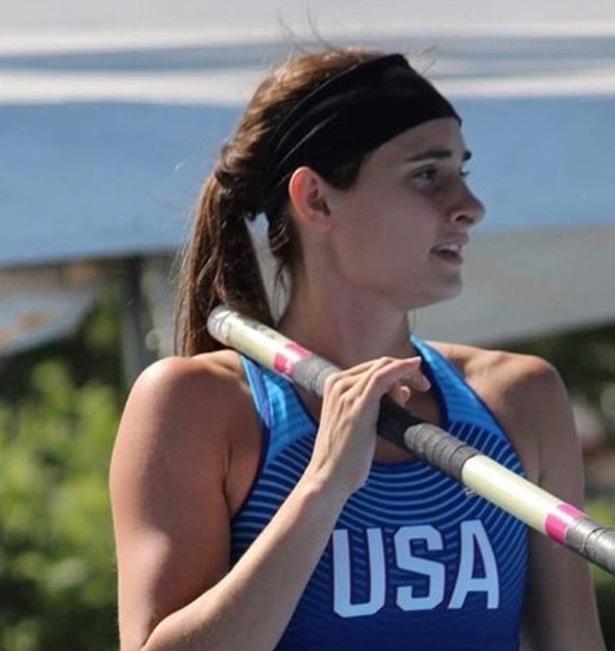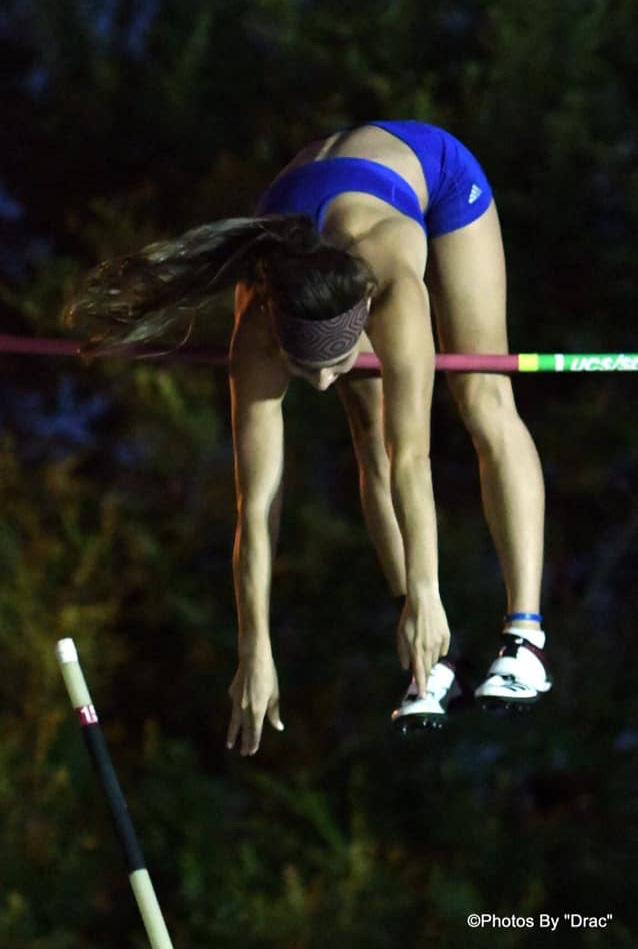
6 minute read
ALINA McDONALD
Destination: TOKYO
Alina, when did you realize that you wanted to take a shot at making an Olympic team?
Advertisement
As a kid who played a lot of sports growing up, it is natural that I would have goals of making an Olympic team. When I got into pole vaulting during my freshman year of high school, it felt like a good goal. However, as a Christian, it is against my beliefs to work/ train/compete on the Sabbath. Growing up in the USA, Sundays are the Sabbath for me. At every Olympic trials thus far, the women’s pole vault finals have always taken place on Sunday. Knowing this, I dropped my goal of making the Olympic team. Instead I focused on becoming the best I can be and began working towards maybe one day breaking the world record. Then, to my surprise, the 2020 Olympic trials schedule was released with the women’s pole vault taking place Thursday and Saturday for the first time ever. That reawakened the possibility within me.
Who has been the most influential person in your athletic development, and why?
The most influential person in my athletic development in the pole vault has been Brian Riggs. He believes in my capabilities and lifts me up even when I have my personal doubts. He is patient when I struggle and get upset. His understanding of physics and gymnastics provides a quality technique that has helped me develop a very efficient vault. I do not think I would be anywhere close to where I am if it were not for him being my coach.
What changed in your training to take you from an average pole vaulter to an Olympic hopeful?
When I moved to Rock Hill, South Carolina for college, I was able to get with Coach Riggs every day for training. Having access to equipment at the Rock Hill Gymnastics Center has also made a difference. Learning some gymnastics skills has greatly improved my vault. I was never a gymnast, so it helped to add some extra body control skills.
How did the postponement of the 2020 Olympics affect you?
It honestly left me indifferent. It has given me more time to train and improve which is helpful. However, because I never really dreamed I would actually compete in an Olympics, I was not as crushed by the postponement.
How have you handled adversity or setback in your athletic career, and what was the process like?
I have been injured a few times between a severe ankle injury, minor ankle injuries, back injuries, a shoulder, etc. Unfortunately, taking time off always sucks. However, it is important to ensure the injury recovers properly or it could affect the ability to participate forever. It is best to take time off to prevent missing out in the future. When injured, I always find other things I can do to stay fit. There are drills or things that can be done to get some technique training in. For example, if my ankle is injured, I can still do gymnastics, upper body workouts, open kinetic chain (seated leg extension, seated leg flexion, etc.), lower body workouts, pool vaulting, and swimming.
I have also faced plenty of adversity through my career. Because I was homeschooled, I was never allowed to participate in high school state meets. I was able to participate through county meets on a local club team for homeschooled athletes. Going into college, I was denied athletic eligibility by the NCAA because I did an online school for my high school education. I moved to Rock Hill to attend Winthrop University and have continued to train and compete in my free time. Since then, I graduated with honors with a degree in athletic training. I passed my board of certification exam to become a certified athletic trainer, and am currently pursuing a master’s degree in sport and fitness administration. All while also improving enough in
Photos provided by Alina McDonald

the pole vault to be able to compete at the Olympic trials.
What is your training routine in preparation for the Olympic trials?
As of right now, I pole vault 2-3 times per week. One day is short run and the other is long run. If I pole vault a third day, that is for a meet. I do strength and conditioning workouts 1-2 days per week, and gymnastics workouts 2-3 days per week. As I get more into a competition season, the intensity of the workouts will back off into more of a maintenance rather than a building mode in order to allow for recovery and optimal performance at meets.
How do you prepare emotionally to train and compete?
A lot of prayer and meditation goes into my mental preparation. There are also a lot of sport psychology skills like deep breathing exercises, positive self-talk, and imagery.
What have you sacrificed to chase the Olympic dream?
I have sacrificed free time to spend with others. I do not go out or hang out with a lot of people because I put my school and training first. I have missed family vacations to prevent missing out on training; and, I have sacrificed building a love life in order to focus on school and training.
What do you do to support yourself financially?
I have a graduate assistantship, and I work part time at the local YMCA as a lifeguard. I plan to get a full time job once I graduate from grad school.
If you knew then what you know now, what would you have changed about your athletic career?
Honestly, I would not change anything. Any time a bump in the road has occurred, something good has come out of it. Everything I have been through and every struggle I have faced has molded me into the pole vaulter I am today. I am not close to being done growing in this sport, but I have matured a lot and would not change anything that has contributed to that growth.
With limited meets taking place as a result of Covid-19, how are you approaching the year?
I am approaching the year with focus on finishing my last semester of school. I am searching for meets, but I am not putting pressure on myself. I have to find meets close by, because I cannot afford to take long trips while I am in school.
How do you think becoming an Olympian would change your life?
I honestly do not think it will change much. It will give me the ability to call myself an Olympian and provide a sense of pride. Aside from that, it may help with sponsorships and open some opportunities to speak and present to younger generations, which I would love. What are your interests and professional goals outside of pole vaulting? ©Photos By “Drac”
I am a Certified Athletic Trainer. I love sports medicine and helping others through their injuries. My goals are to graduate this year with a 4.0 and continue to build my athletic training experiences and network. I hope to get a full time job as an athletic trainer then eventually move into an athletic director position using my master’s degree of sport and fitness admin.
What is something most people don’t know about you?
Most people assume I was a gymnast before becoming a pole vaulter because I have a good swing, however I was never a gymnast. Everything I can do on a high bar was taught to me by Coach Riggs to help with my vaulting. Most people also do not realize that I am in graduate school.











